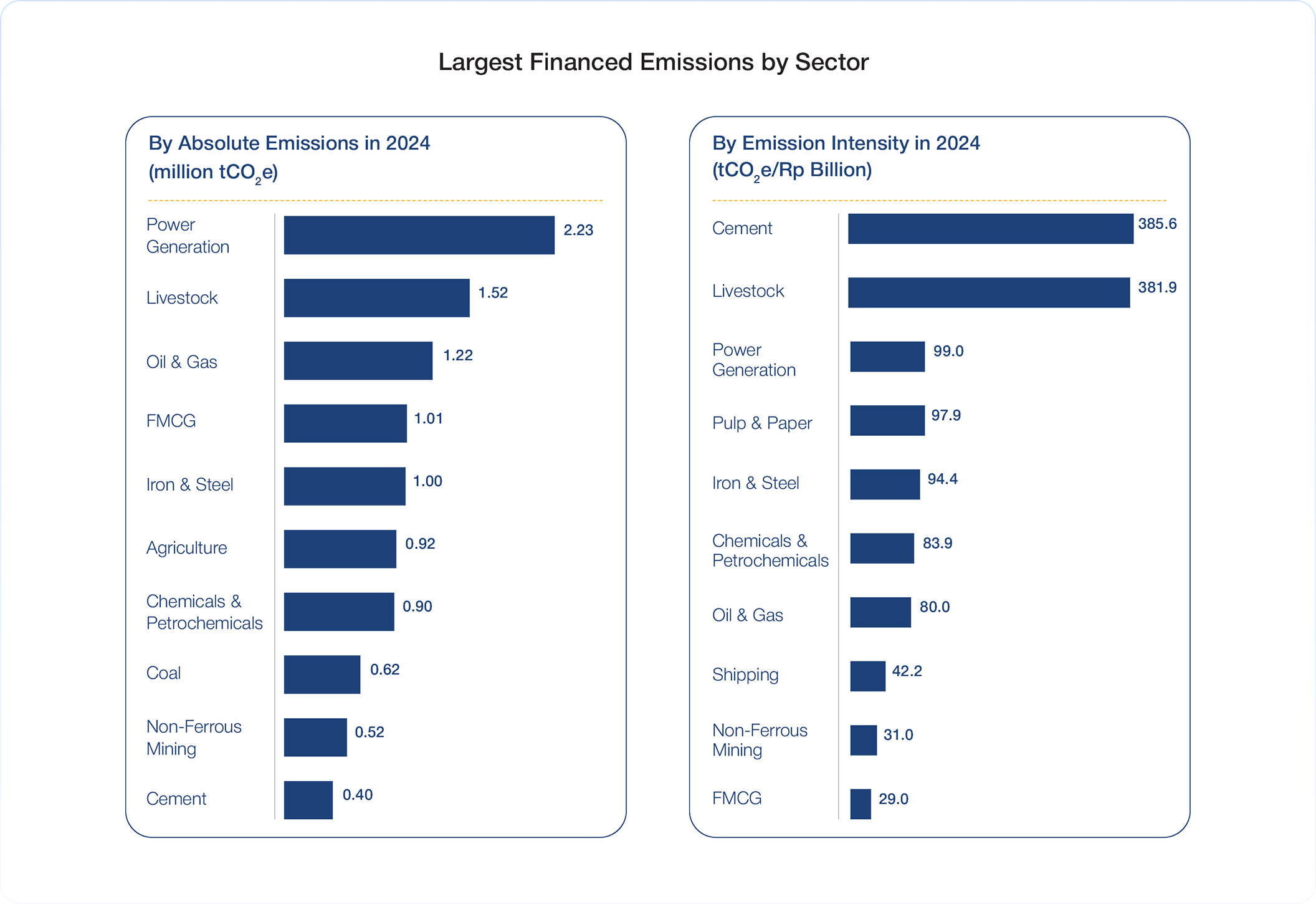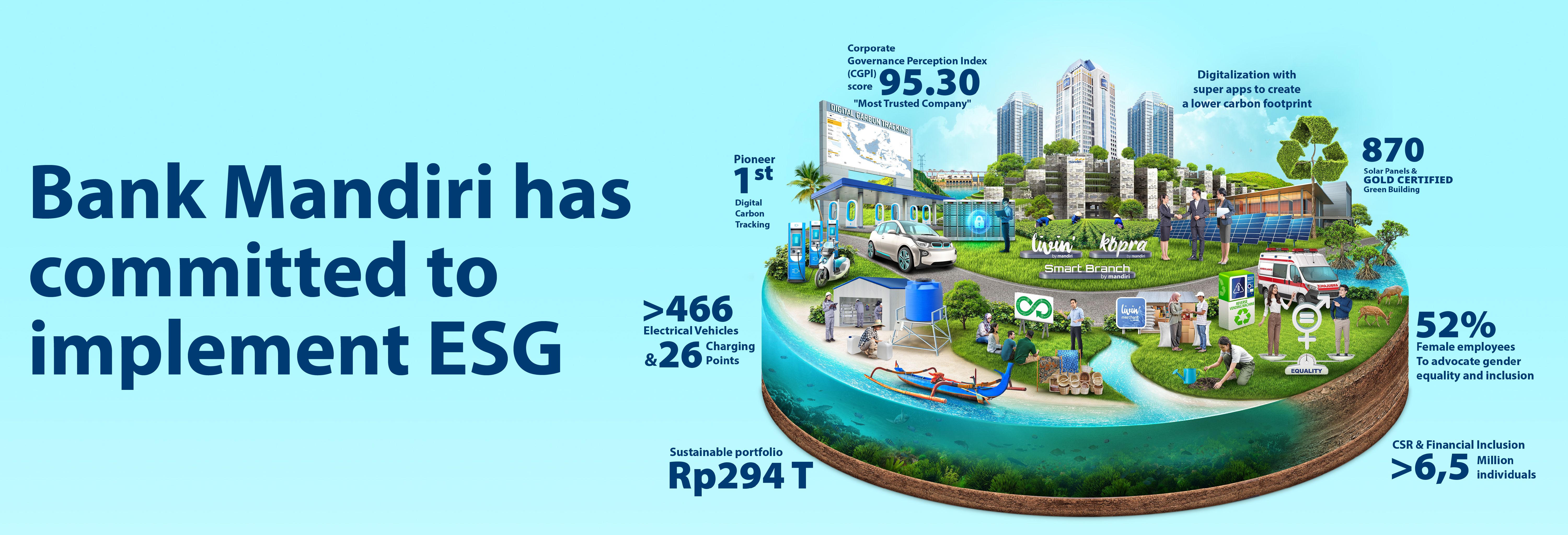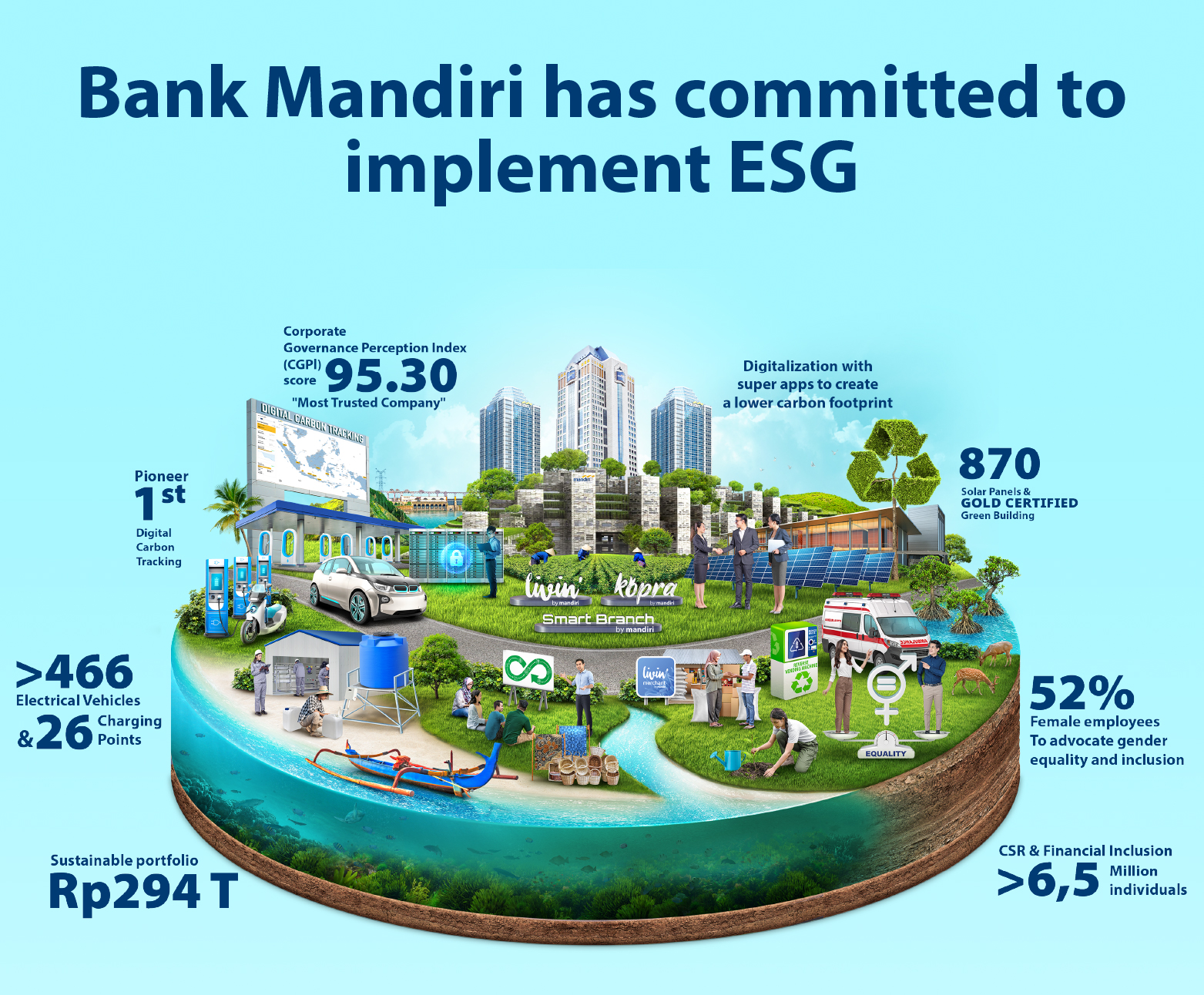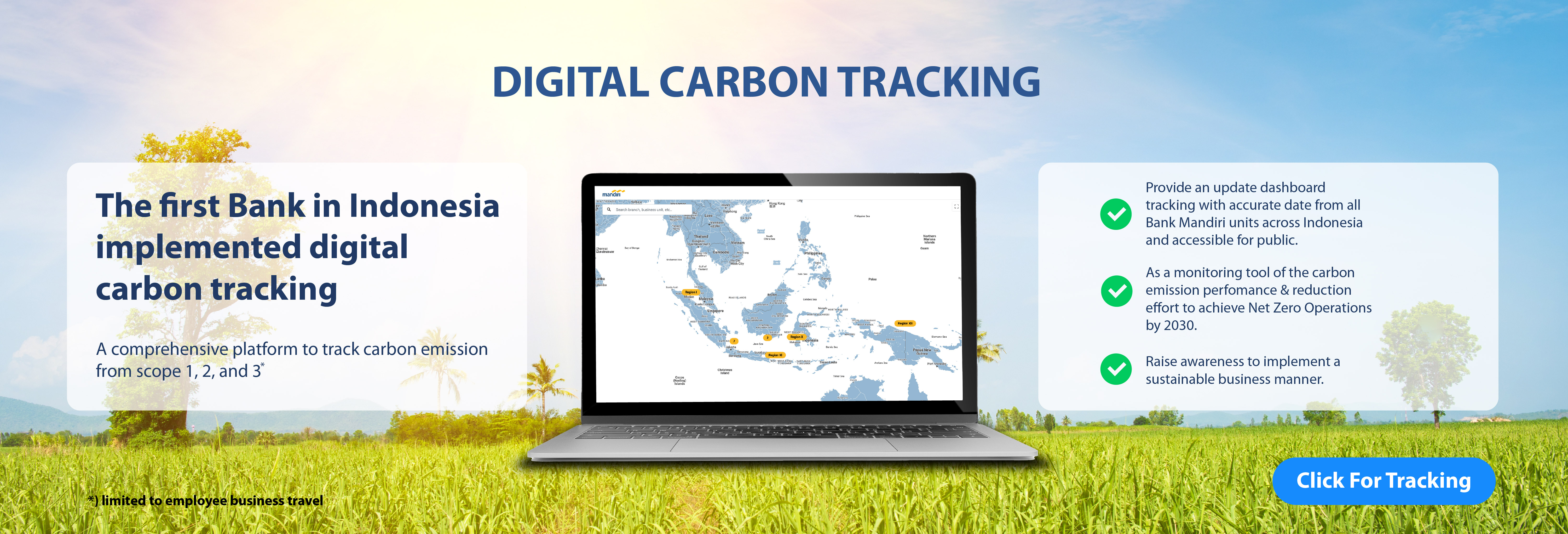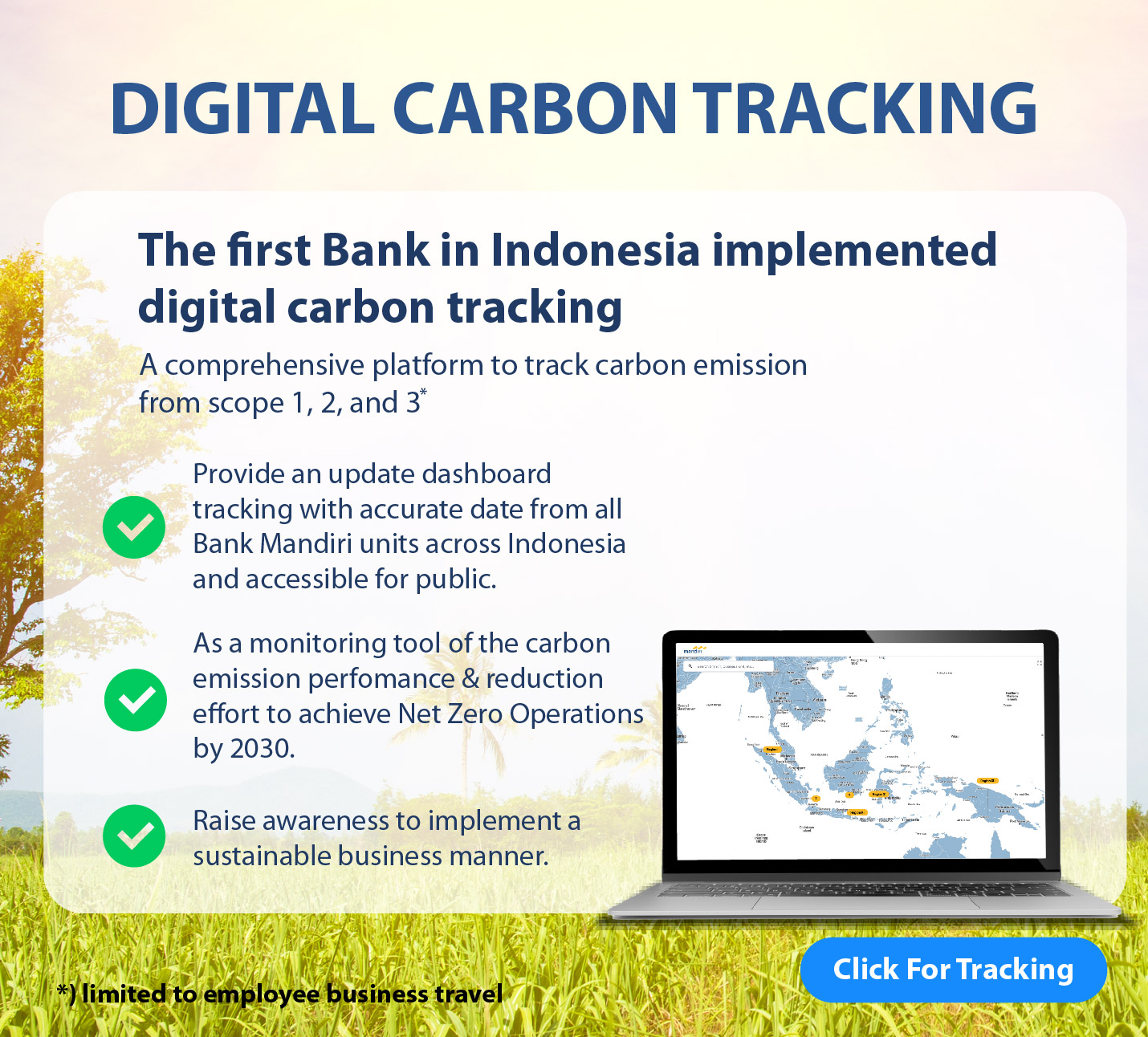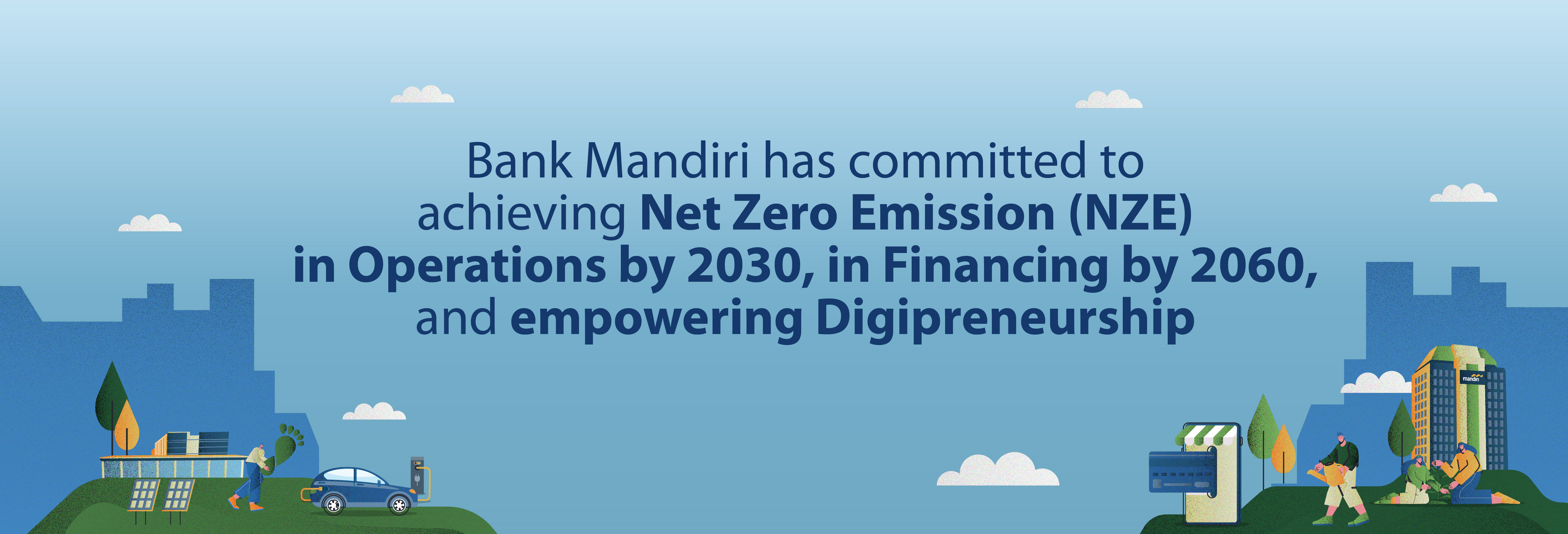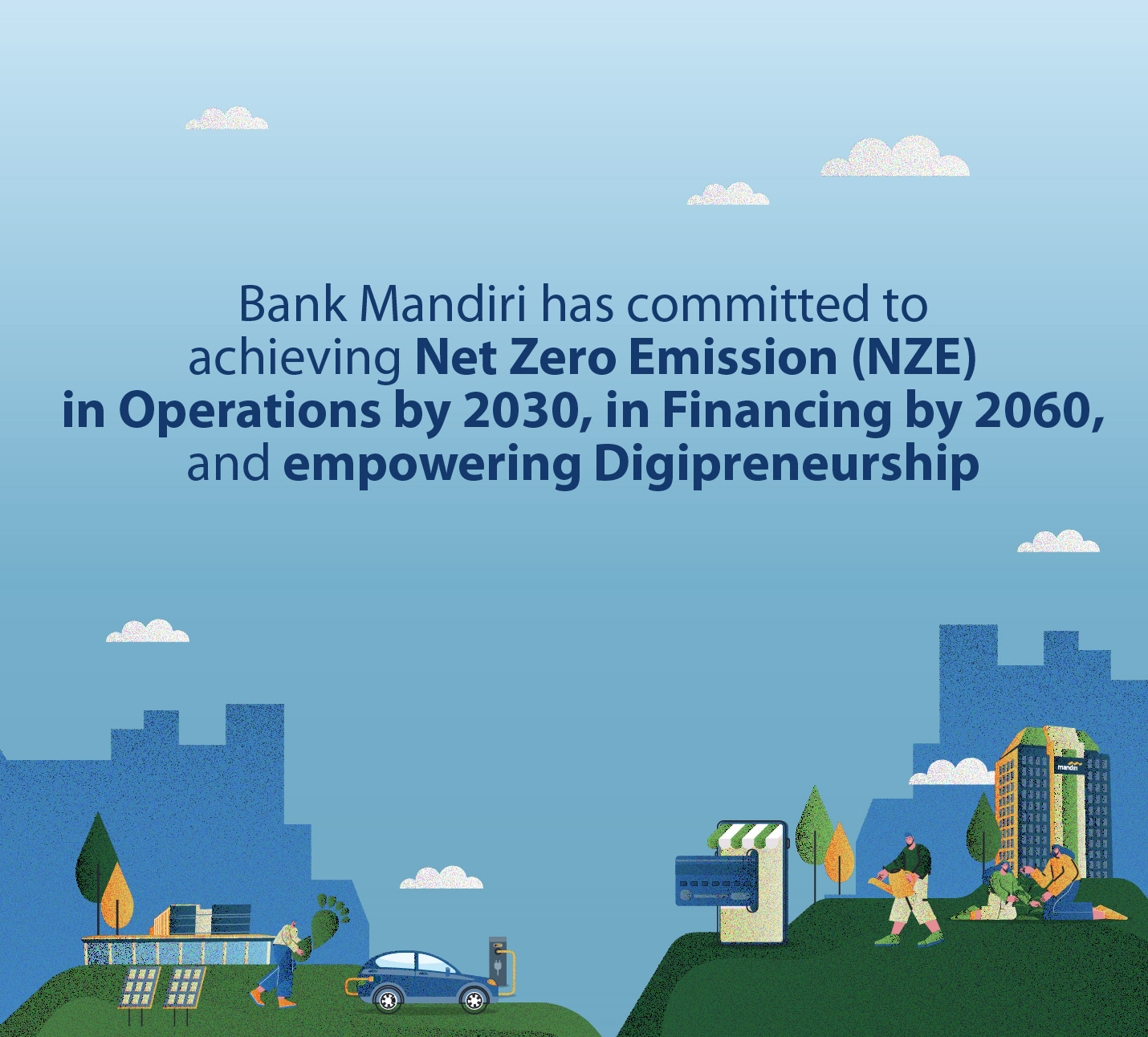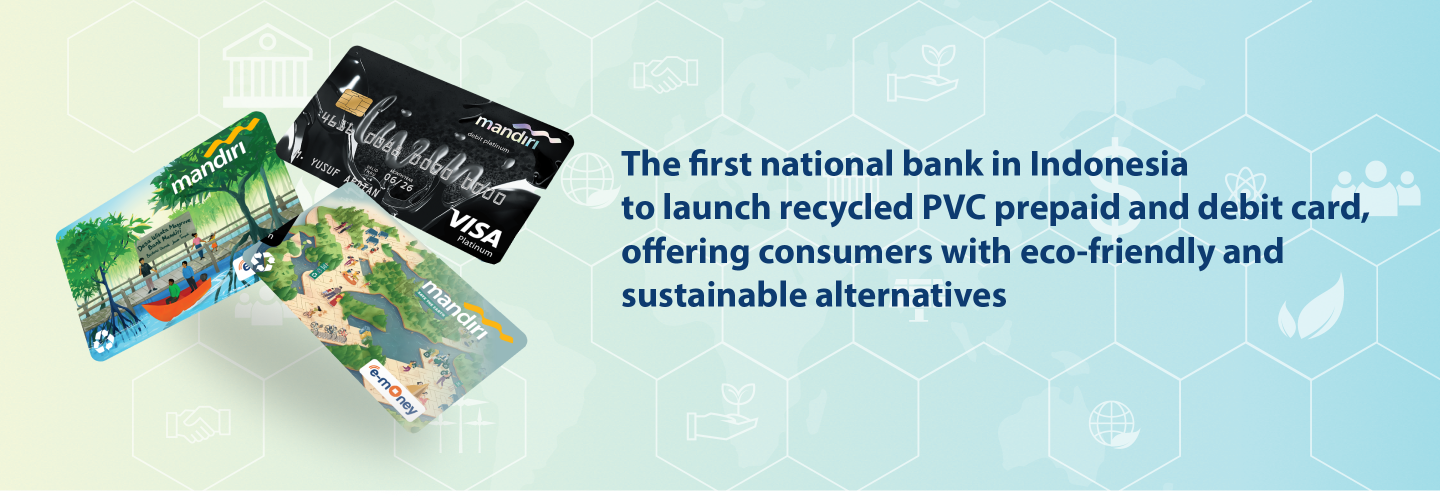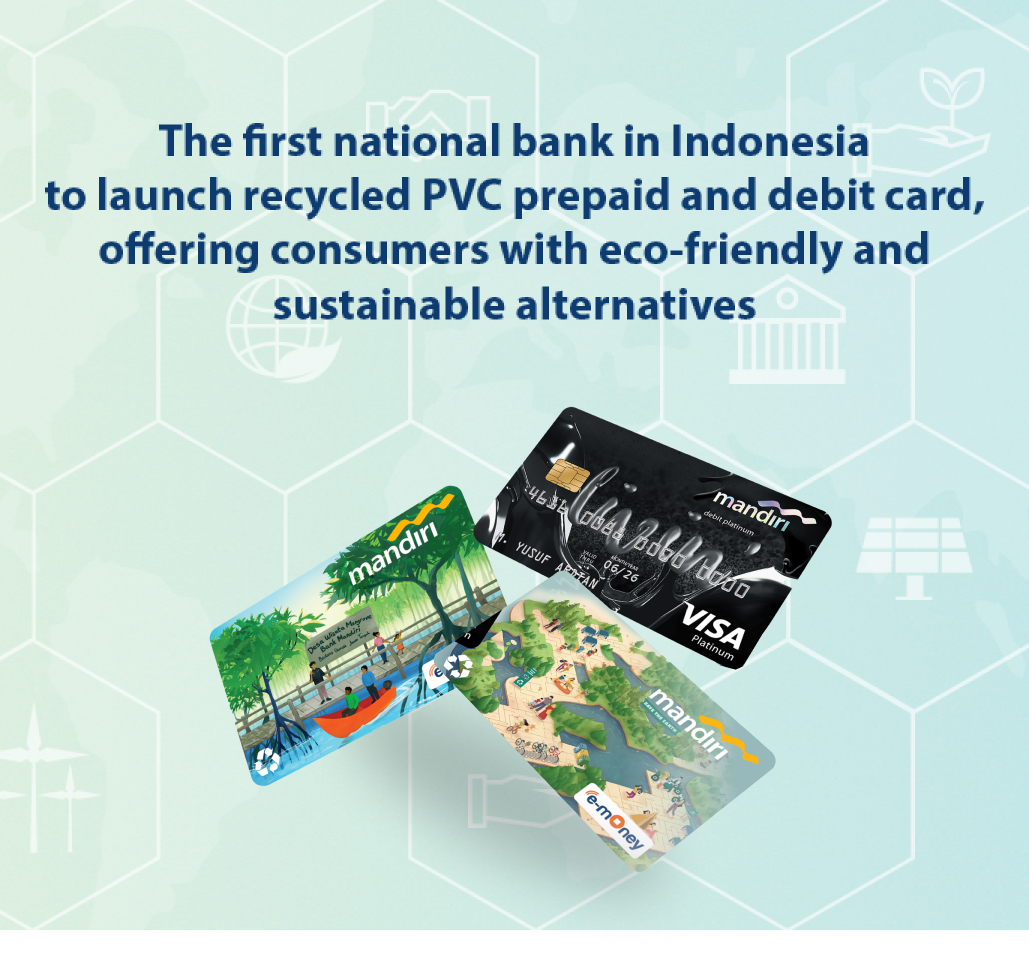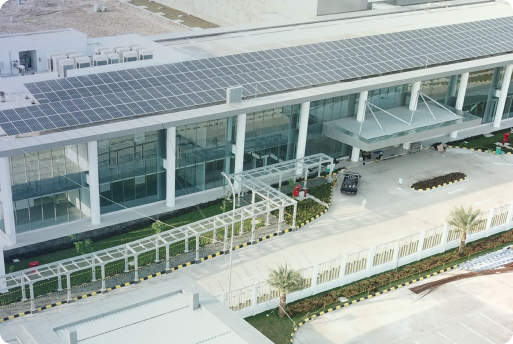
Green Operation
Bank Mandiri is dedicated to promoting environmentally-friendly operations across all of our offices throughout Indonesia. We have implemented eco-friendly features in all of our operational offices and developed transparent monitoring systems, achieved through digital carbon tracking.
BANK MANDIRI ENGAGES IN ENERGY EFFICIENCY AND CLIMATE ACTION
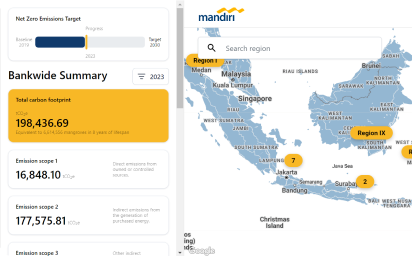
CARBON TRACKING
Bank Mandiri is committed to sustainable operations and has taken proactive steps to lead the way in Indonesia's efforts towards a more eco-friendly future. One of our pioneering initiatives is the development of a digital carbon tracking system. Our digital carbon tracking system is a comprehensive tool that allows us to calculate various aspects of our carbon footprint, including:
- Scope 1 emissions, which pertain to fuel consumption.
- Scope 2 emissions, relating to electricity purchased.
- In its initial phase, Scope 3 emissions, which encompass employee business travel and financing activities in accordance with the Partnership for Carbon Accounting Financials (PCAF) guidelines.
The primary goal of this digital carbon tracking initiative is to closely monitor Bank Mandiri's carbon emissions performance and track our efforts to reduce our carbon footprint. Our ultimate target is to achieve Net Zero emissions in our operations by the year 2030. To ensure transparency and accountability, we provide an updated dashboard that tracks our carbon emissions data, sourced from all Bank Mandiri units across Indonesia. This information is readily accessible to the public, allowing everyone to stay informed about our progress and commitment to a greener future.
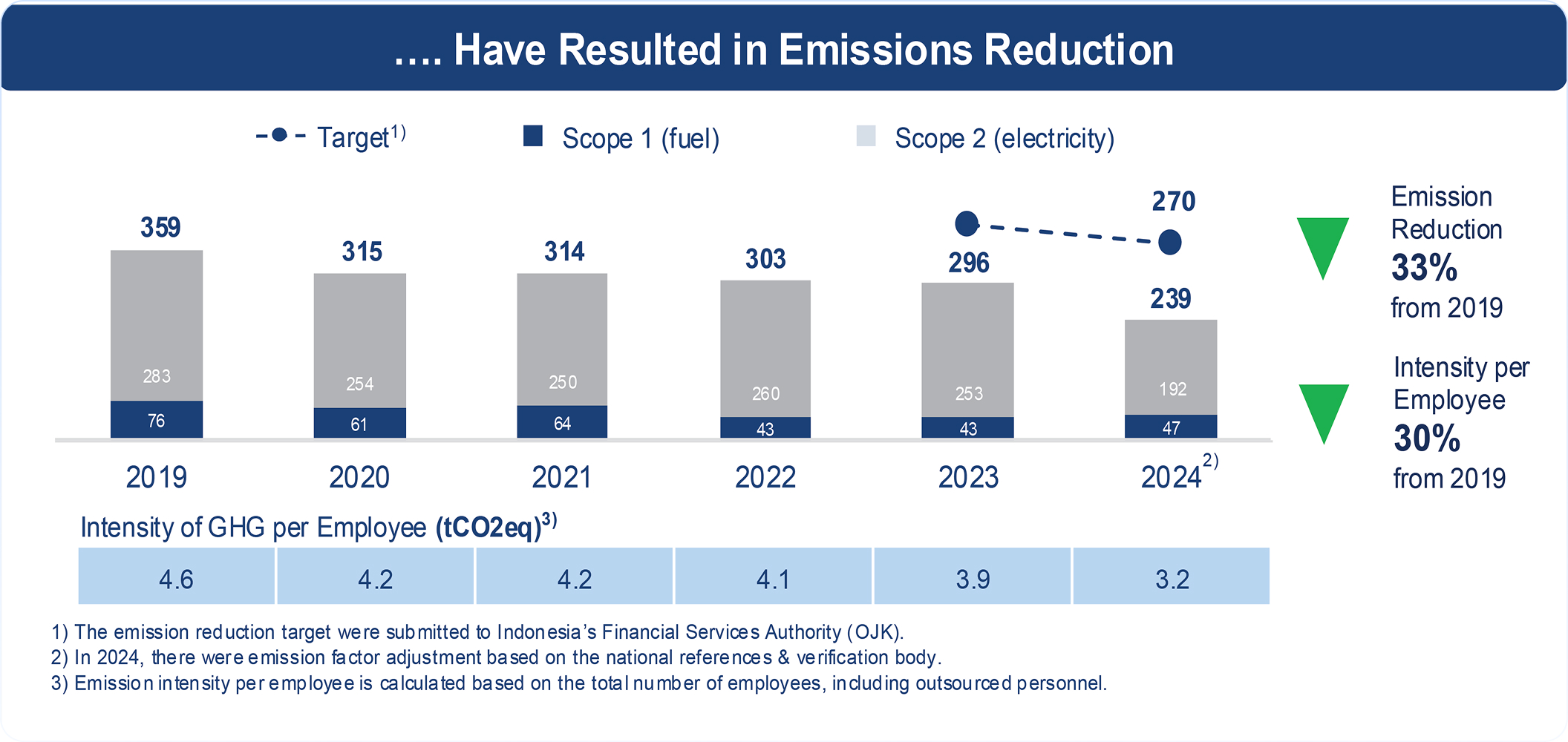
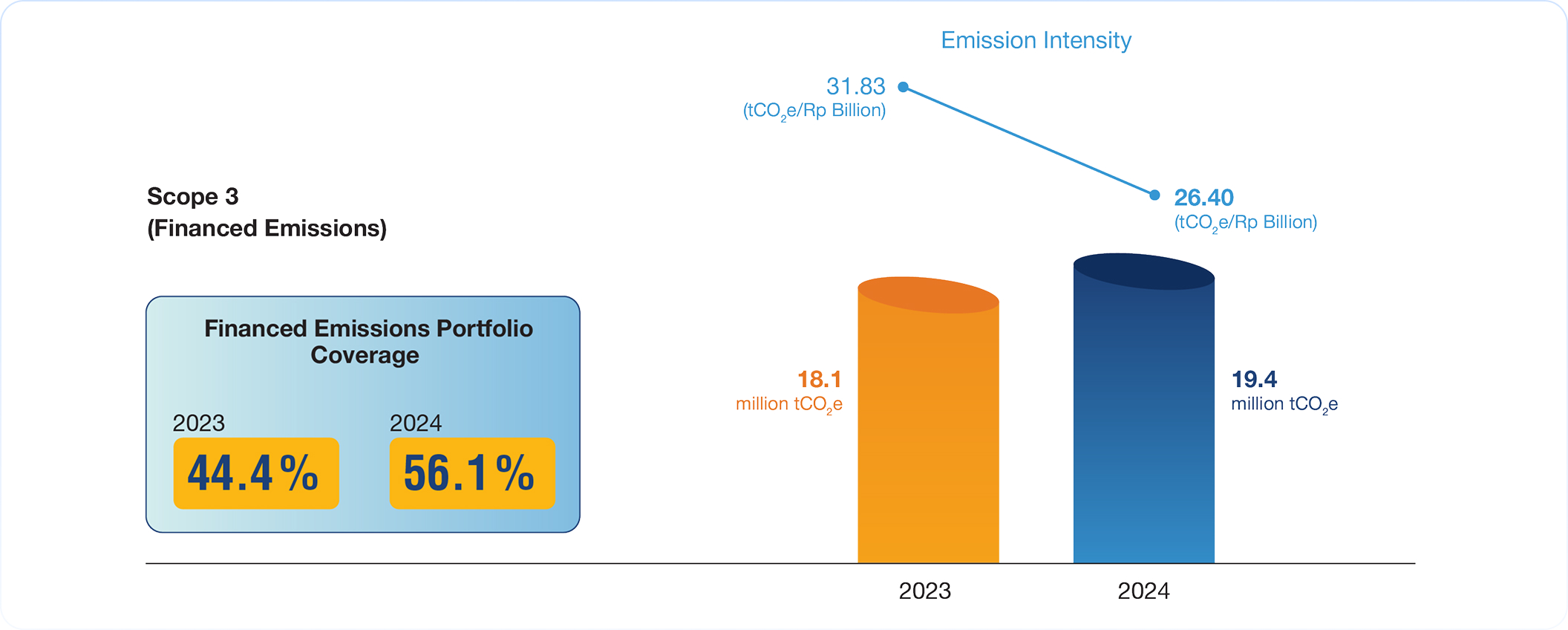
- The calculation of Scope 3 emissions includes tCO?e.
- In 2023, Bank Mandiri designated the calculation of financed emissions using 2022 data as the baseline year. This also marks the Bank’s first year of conducting financed emissions calculations.
- The portfolio coverage refers to the financed emissions of loan assets in relation to the loan portfolio (bank only).
- Greenhouse Gas (GHG) Protocol Technical Guidance for Calculating Scope 3 Emissions.
- Climate Risk Management & Scenario Analysis (CRMS) 2024 Handbook, Financial Services Authority (OJK).
- Partnership for Carbon Accounting Financials (PCAF) Global GHG Accounting and Reporting Standard Part A: Financed Emissions.
- PCAF Standard Development Working Group 2024, Green & Transition Finance category.
- There is a potential for changes in Bank Mandiri’s financed emissions profile in the future, which may be influenced by regulatory developments, methodologies/standards, and the scope of corporate emissions reporting.
